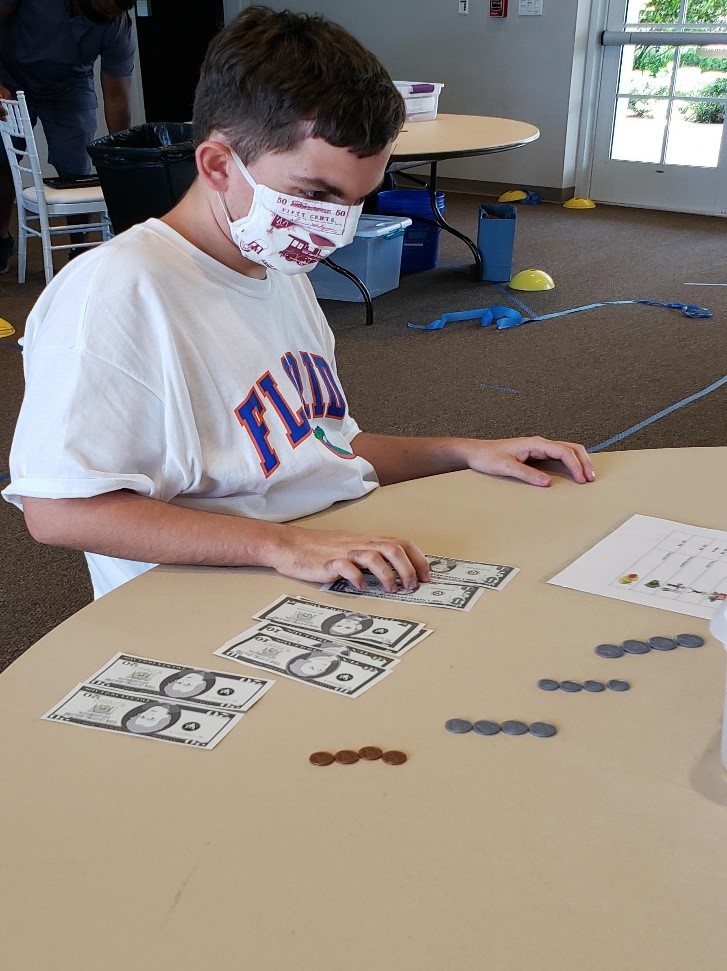
July 22, 2020 | Blog, News Article
The Adult Day Training Program
When a young adult with autism has just graduated high school, what is their next step? Like any young adult, there are different paths they may take. Some may continue to further their education at university, while others will seek paid employment within the community.
There is another population of young adults with autism who have complex needs and may require a higher level of assistance and support transitioning into adulthood.
The Foundation has created a solution to fit these specific individual’s needs through its Adult Day Training (ADT) program, a daily life enhancement program to provide participants the tools to live productive, meaningful lives and opportunities for inclusion into their communities. The program uses the principles of applied behavior analysis (ABA) to provide an environment that supports and nourishes personal growth, learning, empowerment, and self-determination.
Julie Lobdell, ADT Program Coordinator, expressed her excitement about kickstarting the new service at the Foundation.
“The day we gathered in the conference room and told the families they were accepted into the pilot session will forever be ingrained in my mind,” Julie said. “The look on their faces said it all. They were so thankful!”
The initial pilot session served six participants and ran for two days a week. The program has since grown to 12 participants spanning four days a week. A new 3:1 ratio has opened up the program to individuals who require additional assistance.
The program offers activities within the areas of communication, daily living, health/wellness, and employment, focusing on each participants’ individualized learning needs. Activities have ranged from learning to care for animals to partaking in water Zumba classes.
Typically, the participants learn best with in-person instruction along with hands-on activities, however, when the COVID-19 pandemic hit, the team needed to think outside of the box to create a meaningful curriculum that allowed for online instruction to take place. Julie and her team embraced the challenge, working quickly to create engaging virtual vocational and independent living lessons.
Julie created a variety of presentations that essentially include all that the program offered onsite. The participants even took a virtual field trip via PowerPoint that had pictures of a previous field trip to a horse farm.
Wende Banks-Henderson said her son, Foster, struggled with the transition to virtual learning at first, however, when he started following the schedule and saw the interaction with others, he looked forward to getting on Zoom.
Though the participants have not been able to engage in physical activities together for the past few months, they are still able to strengthen their skills through online recreation classes. Participant Shaun Deason, said he “enjoys learning about music, practicing drums, and loves yoga, which helps him focus a bit more.”
Participants have also experienced growth within their relationships through this new online learning.
“They have developed a good bond with one another, for example, if someone were late signing on, or not going to be on for the day; the others would ask where they were,” Julie said.
Overall, the program has accomplished a good deal under Julie’s direction and the commitment of the ADT team. Although these past few months have been difficult, it has only made the program—and its participants grow stronger.

